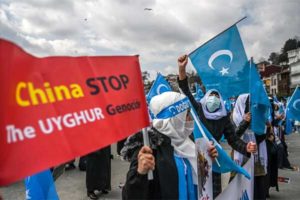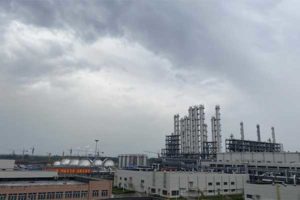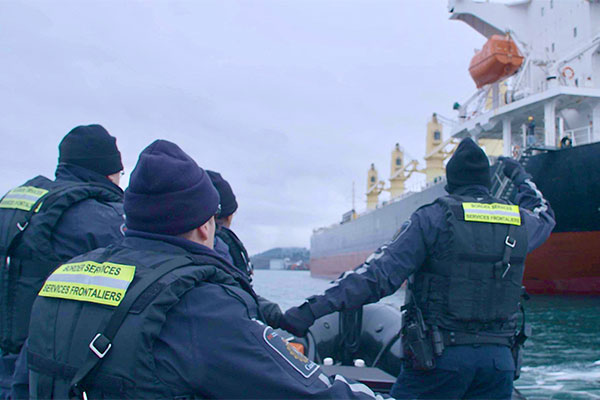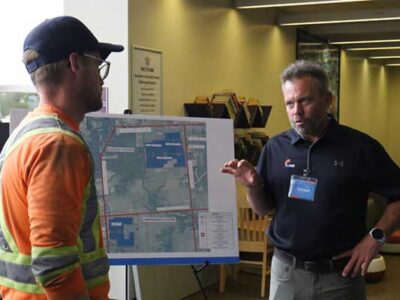- Canada is advancing its crackdown on forced labor within the supply chain sector, with the CBSA taking decisive steps by detaining containers of solar modules to ensure compliance with ethical standards.
- The government plans to introduce legislation in 2024 to further prohibit the importation of goods produced through forced labor.
- These measures signal a significant shift towards greater supply chain transparency and responsibility, urging businesses to align with stringent regulatory expectations.
The Canadian Border Services Agency (CBSA) has taken a significant enforcement action by detaining containers filled with solar modules, showcasing Canada’s intensified commitment to combating forced labor within its supply chains. This move aligns with the broader initiative by the Government of Canada to improve ethical sourcing and supply chain transparency.
As a result, corporations are increasingly compelled to ensure their operations comply with Canadian regulations, particularly those that prohibit forced labor.
In a recent industry newsletter seen by pvbuzz, the detainment of these containers is identified as a critical effort to verify that the products do not result from forced labor. Despite the lack of reported disruptions, according to the newsletter, the initiative highlights the potential for short-term market effects.
Consequently, companies are taking proactive steps to strengthen their inventory systems and forge stronger partnerships with module producers to navigate potential challenges.
Legislative Efforts and Human Rights

Uighur women gather outside the Chinese consulate in Istanbul to denounce the alleged rights violations of Uighurs in Xinjiang (Ozan Kose/AFP)
The 2023 budget announcement was a pivotal moment, signaling the government’s plan to introduce legislation in 2024 that aims to enhance the prohibitions against the importation of goods produced through forced labor. This legislative effort is a key component of Canada’s strategy to foster ethical business practices and enhance the protection of human rights across industries.
The importance of this initiative is underscored by data from the Bureau of International Labor Affairs, which points to the detention of over one million Uyghurs and other ethnic minorities in China’s Xinjiang Uyghur Autonomous Region, many of whom are forced into labor. The region is crucial for the production of various goods under conditions of forced labor, elevating the urgency for international attention and action.
Furthermore, the expansion of forced labor practices beyond Xinjiang emphasizes the heightened risk within global supply chains, necessitating thorough due diligence by companies. The use of labor under the guise of poverty alleviation programs, facilitated by government subsidies, presents serious ethical concerns. Workers are often under constant surveillance, facing the threat of detention, which compels their compliance in a clear violation of human rights.
Industry Response and Compliance

A view of Xinjiang Daqo. (Zhang Dan/GTXinjiang)
In response to the detainment of solar module containers, pvbuzz reached out to the CBSA for comment.
A CBSA official stated, “Goods produced wholly or in part by forced labor are prohibited from entering Canada pursuant to tariff item No. 9897.00.00 of the Customs Tariff, and subject to the Fighting Against Forced Labour and Child Labour in Supply Chains Act.” They further elaborated, “Shipments containing goods suspected of being produced by forced labor are detained at the border for inspection by the CBSA. If the CBSA officer determines that the goods were produced by forced labor, the officer will apply the tariff classification under chapter 9897 of the Customs Tariff and will prohibit the goods from entering Canada. No part of the production, manufacturing, or mining process of a good can involve forced labor.”
This insight from the CBSA highlights the agency’s role in assessing the risk of imported goods to ensure compliance with Canadian import requirements and the administration of over 100 acts and regulations. Goods produced by forced labor are strictly prohibited from entering Canada, with suspected shipments detained for inspection.
These measures reflect the Canadian government’s expectation for businesses to rigorously ensure their supply chains are free from forced labor. Upcoming legislation, such as Bill S-211, aims to combat forced and child labor within supply chains, further promoting transparency and ethical practices across industries.
As the issue of forced labor persists as a significant risk to global supply chains, the need for companies to maintain vigilance and adopt proactive strategies is paramount. By upholding ethical standards and ensuring compliance, businesses can contribute significantly to the global effort to eradicate forced labor, fostering a more ethical and sustainable future for international trade.













Comments